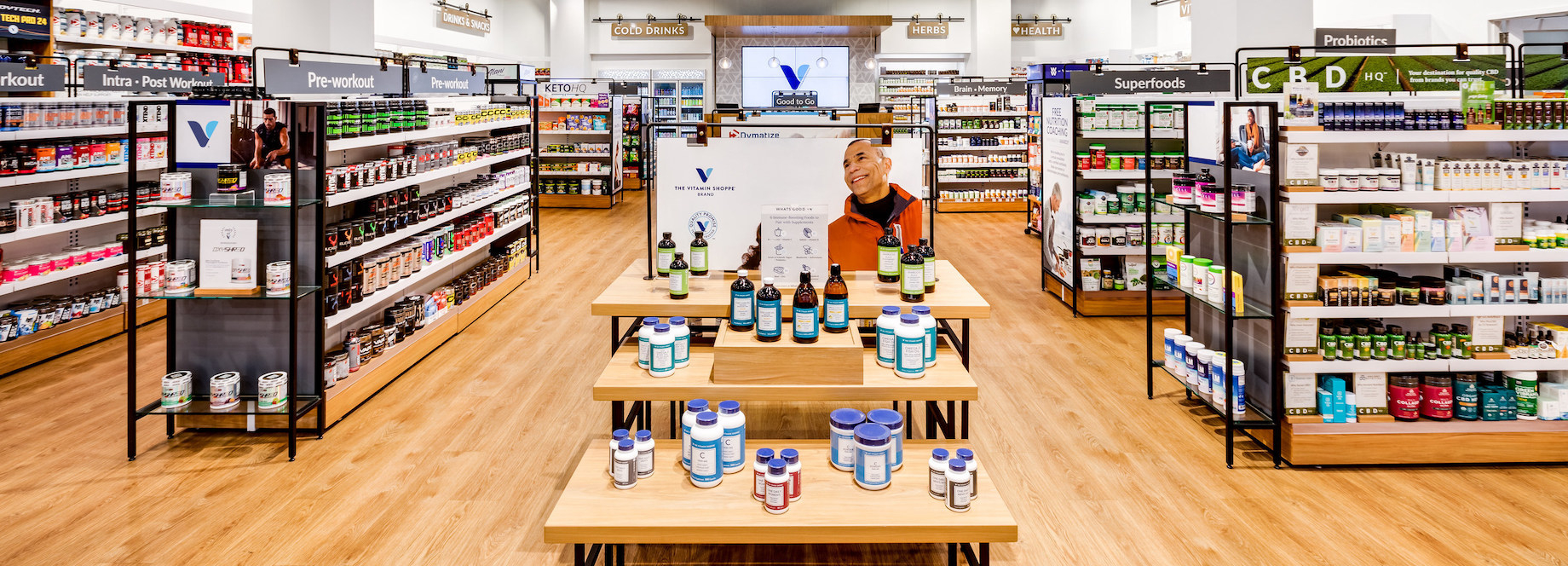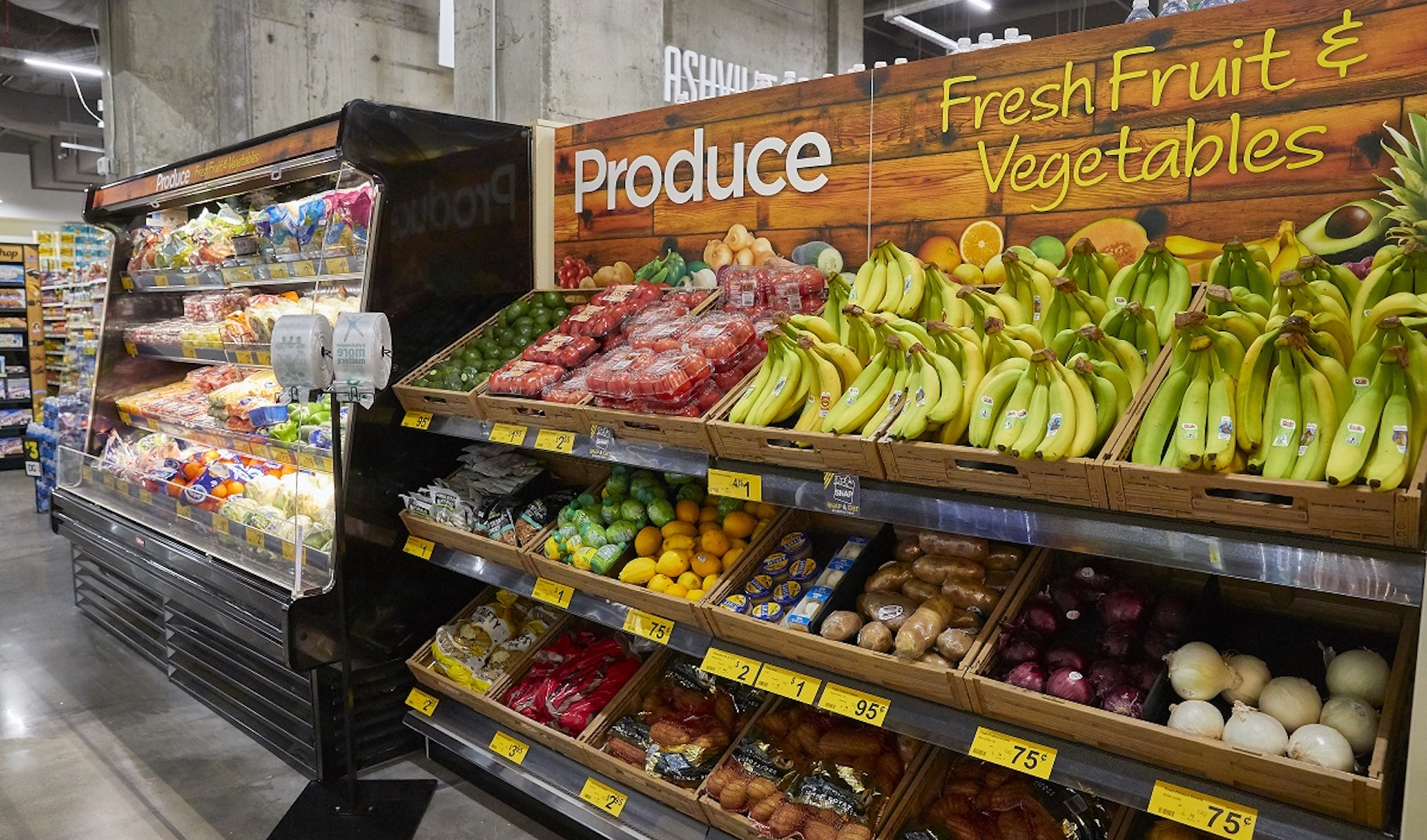Women’s fashion retailer Express wants to reduce the average size of its 500 stores to boost sales productivity, CEO Timothy Baxter said on an earnings call. The retailer is studying the location, size, concept and format, as well as the role physical stores will play in customers’ post-pandemic lives, he said. That includes sizes of mall stores, plus off-mall locations.
At Pennsylvania’s King of Prussia mall, Express tested a smaller concept that brought in twice the sales per square foot of the average Express store, Baxter said. The retailer is testing another smaller store at NorthPark in Dallas now. “These stores and others like them will help us determine the optimal size of our mall-based stores,” he said. “And we have tremendous flexibility with approximately two-thirds of our leases actionable over the next three years. Our mall stores can and will be more productive, and we will also expand beyond the mall.”
The retailer also is growing off-mall with its Express Edit concept. Express Edit stores have short-term leases in off-mall locations with strong foot traffic that give the retailer the flexibility to test, learn and modify, Baxter said. The product mix at Express Edit stores reflects local styles and trends. Two existing Express Edit stores are bringing in new-to-the-brand customers at a higher rate than the retailer’s traditional stores, he said. The Express Edit store in Nashville, for example, has added 45 percent more new customers than the average store. Express Edit stores also generate higher average dollar sales per transaction and higher conversion rates. A unit in Columbus achieved a conversion rate more than twice the company average, Baxter added.
The retailer will have 10 Express Edit stores by the end of this year. “We have already selected sites in Westport, Connecticut, and Washington, D.C., with footprints under 4,500 square feet,” Baxter said.
Express Edit also is helping the company explore multiple stores in a single market. “We will open two locations in Washington, D.C., where we currently operate stores in the adjacent suburbs,” he said. “Testing these smaller formats in the city center will allow us to read the impact on existing stores and e-commerce sales to these ZIP codes and new and existing customer activity overall.”
Two retailers hit the gas on franchising
The Vitamin Shoppe is going into franchising for the first time in its 44-year history. The nutritional supplements retailer already operates 680 corporate stores under The Vitamin Shoppe and Super Supplements banners. “This new growth strategy is a capital-efficient way to grow our retail footprint in a favorable real estate market,” said CEO Sharon Leite. The first franchised locations of Vitamin Shoppe stores are expected to open this year. Franchise markets are available in all U.S. states except Washington and Oregon, where The Vitamin Shoppe operates under the Super Supplements banner.

Meanwhile, after a decade hiatus from franchising, fast-food chain Jack in the Box relaunched its program in March. “We’re thrilled to be relaunching the franchise business development department and recruiting,” national director of real estate, asset management and franchise business Laurie Macaluso said during a session at ICSC’s recent RECon Digital. The company has hired employees and set up a website to facilitate recruitment, she added. About 70 percent of Jack in the Box’s 2,200 restaurants are in California and Texas, she said. “We’re focused on working with existing franchisees to grow their business, but we’re also actively recruiting in emerging markets like Kansas City, Oklahoma, Colorado, Georgia, Kentucky [and] Florida.”
Investing in the future of retail tech
Ulta Beauty is one of the investors providing $6.2 million in Series A venture capital financing for Adeptmind, which will use the funding for R&D. Since the artificial intelligence firm launched in 2017, more than 400 retailers and property owners have adopted its technology to offer customers more-convenient ways to browse, discover and shop, both in-store and online. Landlords that use the tech include Bayer Properties, Cadillac Fairview, Centennial and Hammerson, and retailers include Ulta Beauty, Decathlon and the U.S. Polo Assn. According to Hugo Silva — investment manager at property technology firm Pi Labs, one of the companies funding Adeptmind — the technologies Adeptmind is developing can help landlords and retail asset owners increase, measure and share in the revenue that can be generated online through the presence of a physical store.
Big Lots bets on data to drive growth
Big Lots said same-store sales for its first quarter, which ended May 1, increased 11.3 percent year over year, thanks in part to government stimulus for consumers, which helped drive a surge in sales of lawn and garden merchandise. The company is investing between $200 million and $219 million in its infrastructure and stores this year, according to president and CEO Bruce Thorn. That includes adding ship-from-store capabilities. By the end of 2021, the discount chain will have 55 of its stores outfitted to fulfill online orders.
“We are launching new, data-driven space-planning capabilities,” Thorn said on an earnings call. Big Lots will go live with a software platform in the second quarter that will help curate merchandise buying cycles, optimize floorplans per store, further optimize allocation and replenishment and improve store compliance with corporate standards, he said. Big Lots also will open 20 new stores on a net basis this year. “We continue to see significant volume and operating profit opportunity from store-count growth,” Thorn said. He added: “We expect further acceleration in 2022 and beyond. This will be driven by both increased store openings but also by slowing the rate of closures. We continue to make excellent progress on holding down store closures through our store intervention program, focused on diagnosing and addressing the root causes of store underperformance.”
Kirkland’s wants stores to be more fulfilling
Home decor retailer Kirkland’s reported a 16 percent year-over-year increase in same-store sales for the first quarter, excluding the impact of the COVID-19-driven store closures from the prior year. CEO Woody Woodward said a strong housing market and decreased competition from rival retailers that have shuttered physical stores helped fuel the increase. “We’re seeing signs that the big lift to home furnishings that was happening pre-pandemic and throughout the past year are sustainable,” he said, adding that customers also are responding to Kirkland’s value-oriented makeover. “One of our strategic goals was to continue the transformation of the Kirkland’s brand into a specialty retailer where customers are able to furnish their entire home on a budget.” One of the company’s goals for 2021 is to fulfill 50 percent of online orders from its 370 stores. It fulfilled 30 percent that way in the first quarter.
Strange bedfellows?
Walmart and Gap Inc. are teaming up to tap the home decor market. A new brand called Gap Home will launch on Walmart’s website on June 24 with 400 bedding, bath and decorative accessories items. A sample is pictured at top. Walmart then will stock the bestselling Gap Home items in the discount chain’s physical stores.
Texas’ own H-E-B finally opens in Dallas
H-E-B has 340 stores in Houston, Austin, San Antonio, Abilene and Mexico, but it has yet to open shop in the Dallas-Forth Worth market. Until now. The popular supermarket chain broke ground on a 111,000-square-foot store in Plano, Texas, this week. It will open in fall 2022, along with another unit for the area, in Frisco.
Fresh food at dollar stores
Dollar stores are offering fresh groceries at some stores after years of criticism that they don’t provide enough healthy food options. Family Dollar has started selling fruits and vegetables like apples, oranges, onions and potatoes — as well as frozen poultry, pork and beef — at approximately 100 of its more than 7,000 stores, a spokesperson said. Meanwhile, Dollar General plans to add produce sections in 1,000 of its stores this year.

Fresh fruit for sale at a Dollar General DGX
Pep Boys’ engine has stalled
Automotive parts retailer Pep Boys is closing or selling 100 of its 1,000 stores around the U.S. Owner Icahn Enterprises is shifting out of retail to focus on repairs and tire sales. In March, Icahn announced a deal to sell 109 Pep Boys stores to rival Advance Auto Parts.
From Sears to sea …
This summer, SeaQuest will move in to the former Sears anchor space at Lithonia, Georgia’s Mall at Stonecrest, the aquarium operator’s 10th U.S. location. The mall’s owner, Hallmark Venture Group recently killed plans to turn the former department store into a public safety hub and last month sold it to SeaQuest for $2.4 million. At more than 25,000 square feet, it will become SeaQuest’s largest location.

By Brannon Boswell
Executive Editor, Commerce + Communities Today